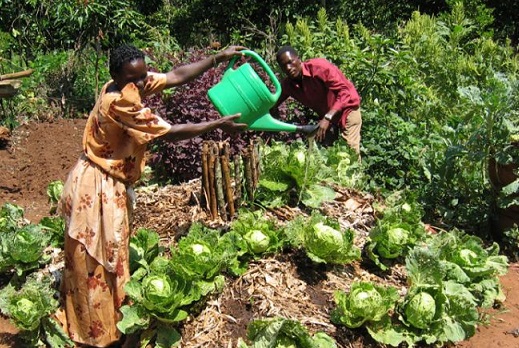By Lucky Brian Wamboka
On 26th May, 2020, FRA co-organized a webinar with CEFROHT, Kabarole Research and Resource Center (KRC), CURAD and Slow Foods Uganda under the theme “Urban food self-sufficiency; lessons learnt from nasty experiences of COVID 19 responses”.
Supported by OXFAM in Uganda, Hivos and Trocaire; the meeting intended to dig into the plight of urban dwellers in regard to how secure, resilient and sufficient the urban food systems are during and after a crisis like the COVID 19 pandemic. The deliberations were meant to inform decisions made by policy makers both at local and national level to ensure food and nutrition security seizes being an issue of emergency during and after this crisis.
The meeting attracted over 77 stakeholders including representatives from Local Governments, civil society, researchers, media and academia among others. The meeting also attracted stakeholders from different countries including USA, Italy, UK, Germany, Ethiopia, Indonesia, India, South Africa, Cameroon and Ethiopia. It was broadcasted live on Kabarole Research and Resource Center (KRC) 102 FM and streamed live on the FRA Facebook platform.
Water plays an important role in food security and in contributing towards a strong food system in rural and urban areas. It is key for increasing food production and farm income and improves resilience against weather variability though it can also affect food security and nutrition through other pathways. The fact that food and water are the first line and front line defenders of human security amidst the COVID19 pandemic, it is paramount to build resilience of urban cities in preparation for related future emergencies. As predicted by the World Health Organization that COVID 19 might stay for some time, water and food related issues need to be addressed holistically as they are potential threats towards achieving food security and long-term sustainability of food production systems especially in urban areas.
In his presentation during the meeting, Kimera Henry Richard who is the Executive Director of CONSENT and the FRA Board Treasurer noted that COVID 19 has done a very good audit on Uganda’s food sector and has revealed how weak the country’s food system is and how it is affecting equally the poor and the rich. Kimera noted that food safety should be mainstreamed in every national agenda and it is a shared responsibility that calls for collective planning and effective coordination among all MDAs. He added that government should also prioritize and promote sustainable agricultural policies and practices, conservation of biodiversity, soils, and water resource utilization that facilitate food production.
Whereas there seems to be limited access to land and water for agricultural production in urban cities, Immaculate Sekitto from World Vision explained that people in urban areas need to adopt simple technologies to harvest rain water and sustainably use this to irrigate their crops within the confined areas. Kimera Henry Richard shared his experience that he has managed to harvest water and sustainably managed it by recycling the waste water to irrigate his vegetables and it has greatly contributed to food production within his home.
Agnes Kirabo, the Executive Director of FRA noted that people living in urban areas mainly consider water as a facilitator for improved sanitation and hygiene. She added that “all investments on water in urban areas are geared towards sanitation and hygiene. There is need to put up force of advocacy to ensure that another form of investment facilitates infrastructural development for water for agricultural production in urban areas to ensure improved food production.” This will also reduce over dependency of urban cities on food produced by rural farmers.
Mohammed Ahamed Sharif the Executive Director of KRC presented that with the high cost of water in urban areas, water resorces should be used sustainably. Currently KRC is working towards supporting farmers through encouraging them to adopt water for agricultural production technologies that are cheaper to enable farmers in urban areas with confined areas to produce food throughout the year whether in dry or wet season. The technologies include use of rain water harvesting tanks and simple irrigation materials among others.
The COVID 19 outbreak has revealed that there is no enough food to adequately sustain urban cities. Strengthening urban agriculture is vital and it should be strongly linked to how water resources are managed and used. Water resources are critical for creating resilient and sustainable urban food systems. This calls for increased investments in infrastructure for water for agricultural production, strengthening institutional capacity of the MDAs, effective and collaborative implementation of related government policies to overcome daunting challenges.
If water resources are properly managed amidst the competing water demands and pandemics like COVID 19, it will be possible for the urban population to independently meet their current and future food and water needs.
